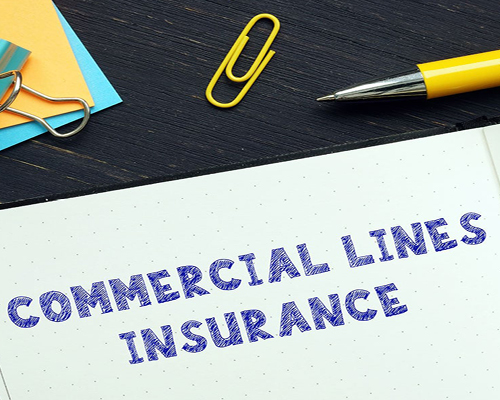Insight

Top Risks Faced by NJ Businesses and How Commercial Insurance Can Help Mitigate Them
Running a small business in New Jersey can be a challenging endeavor, and there are numerous risks that small business owners face on a daily basis. These risks can range from property damage and natural disasters to employee risks and legal liability. In recent years, the United States has experienced a number of major disasters, such as hurricanes and wildfires, which have caused significant property damage and disrupted business operations. Additionally, cyber-attacks and data breaches have become increasingly common, posing a threat to businesses of all sizes.
Fortunately, there are steps that small business owners can take to protect their businesses from potential risks. One of the best practices is investing in commercial insurance coverage specifically tailored to their business’s unique needs. In this post, we’ll explore the top risks faced by NJ businesses and how commercial insurance can help mitigate them.
Property Damage
One of the most common risks that small businesses face is property damage. This can be caused by a wide range of events, including natural disasters, such as hurricanes, floods, earthquakes, fires, theft, and vandalism. Such events can cause significant damage to business assets, leading to disruption in business operations and cash flow. In order to protect against these potential risks, small business owners should consider investing in commercial property insurance. This type of insurance can cover a wide range of property-related risks, including damage to buildings, equipment, inventory, and other assets.
General Liability Coverage
Another common risk faced by small businesses is legal liability. This can include bodily injury to customers or employees, property damage to third parties, and other types of legal claims. In order to protect against these risks, small business owners should consider investing in general liability coverage. This type of insurance can help cover legal fees, medical expenses, and other costs associated with legal claims against the business.
Professional Liability Insurance
In addition to general liability coverage, small businesses may also need professional liability insurance, which can protect against claims of errors and omissions in professional services. This type of insurance is particularly important for businesses that provide professional services, such as lawyers, doctors, and consultants. Professional liability insurance can cover legal costs, settlements, and judgments in the event that the business is found to be at fault for such claims.
Business Interruption Insurance
Another risk faced by small businesses is business interruption, which can occur due to a wide range of events, such as natural disasters, equipment failure, and supply chain disruptions. Business interruption insurance can help cover lost income and other expenses associated with the interruption of business operations. This type of insurance can be particularly important for small businesses that rely heavily on their physical location to conduct business.
Cyber Insurance
As businesses increasingly rely on technology to conduct business, the risk of cyber-attacks and data breaches has become a major concern. Cyber insurance can help protect against such risks, covering the costs of responding to a breach, including investigating the incident, notifying affected individuals, and providing credit monitoring services. Cyber insurance can also help cover losses associated with business interruption, data recovery, and reputation damage.
Commercial Auto Insurance
If your business owns vehicles that are used for business purposes, you should consider investing in commercial auto insurance. This type of insurance can help cover damages and injuries resulting from accidents involving your business vehicles. This type of insurance can be particularly important for businesses that rely heavily on transportation to conduct business.
Workers’ Compensation Insurance
Small businesses that employ workers should consider investing in workers’ compensation insurance. This type of insurance can help cover medical expenses and lost wages for employees who are injured on the job. Workers’ compensation insurance is mandatory in the state of New Jersey, and failure to comply with state laws can result in legal liability and financial penalties.
The risks faced by NJ businesses are numerous and varied. However, with the right commercial insurance coverage in place, small business owners can protect their businesses from potential risks and ensure their long-term success. Working with an insurance agent or broker specializing in business insurance solutions allows small business owners to obtain coverage solutions that best fit their unique needs and risk exposure. With expert determination and careful attention to the specific risks their businesses face, small business owners can mitigate their risk exposure and ensure that their businesses are protected from potential losses. As always, it is important to stay up to date on state laws, industry-specific risks, and best practices in risk management, in order to ensure that your business is prepared for any potential risks that may arise.